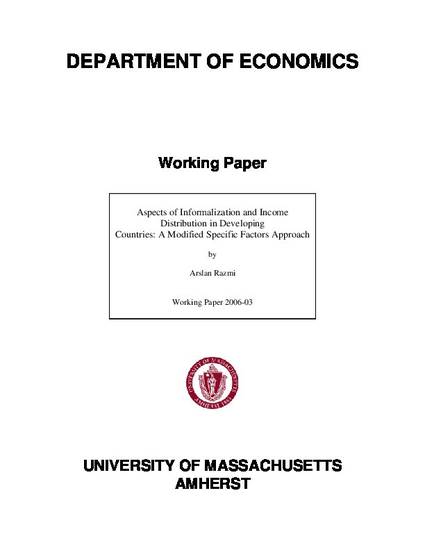
This paper explores aspects of increased informalization in developing countries with the help of a modified specific factors model with a fixed nominal wage in the formal sector, which is assumed to have a “lighthouse” effect on the informal sector wage. Both sectors produce a tradable good each, with informal sector production being embedded in international production networks. Comparative dynamic exercises that attempt to simulate recent economic developments in many developing countries yield plausible results, and suggest various channels for increased informalization. Contrary to standard sticky wage models, wage suppression in the formal sector leads to informalization. Changes in factor endowments create a conflict of interest between the owners of capital in the two sectors, unlike the canonical specific factors model where the conflict is between the owners of capital and labor. Finally, factors that lead to informalization are also likely to result in greater inequality in income shares between labor and capital even with nominal wages that are fixed and equal between the two sectors.
Available at: http://works.bepress.com/arslan_razmi/7/
